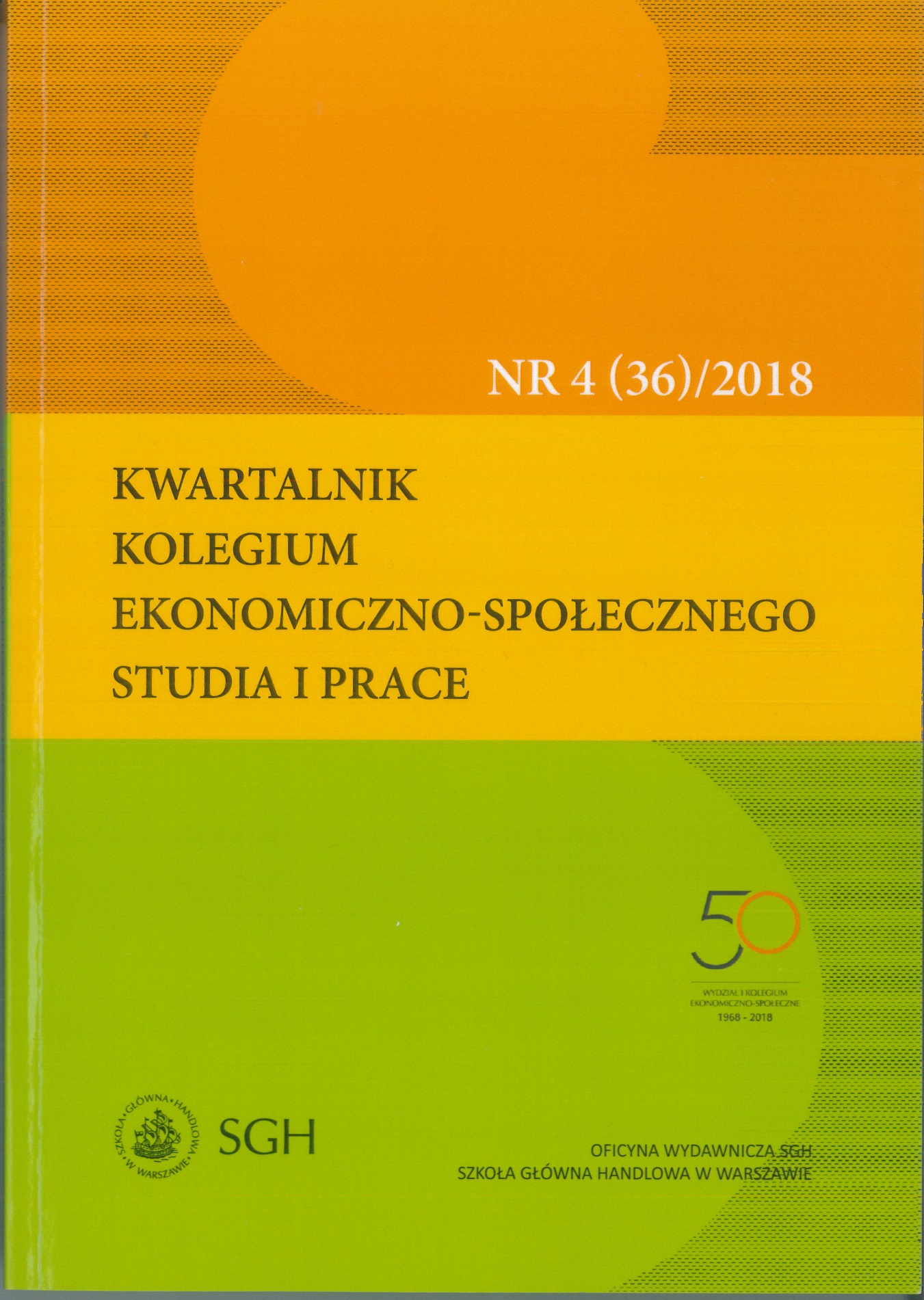When does a liberal state become an unliberal one?
Main Article Content
Abstract
A liberal state becomes an unliberal one whenever it ceases to provide for an effective framework of fulfillment of individual aspirations and, instead, commences a program of community-building in a setting, where the community is to fully include only somehow specified members of politically privileged group(s). In such a non-liberal model of state, the state is meant to be a perfect implementer and an ultimate model within which the very being of the community is to be realised. As a consequence, it is meant to give priority to communitarian needs, which are to prevail over individual ones. In such a setting, the state must seem, or if possible, be omnipotent, which implies that the state would have to be empowered to define each and every individual’s position in the community – conveyed to them through various rituals of symbolic provision for the power elite, including participation in the sado-masochistic theatre of submission and control. The non-liberal state defies public choice as a model for unconstrained and axiom-free selection of public provision which is meant to expose individual, yet aggregated, preferences. Instead, it gives the ruling elite the power to identify the interest of the community as a whole. This interest is defined as transcendent and not suitable for any public choice. This model, however, cannot be effective in the long run, because of diminishing returns and because of inability to adjust the state-provision mechanism to changing public preferences.
Downloads
Article Details
Autor (Autorzy) artykułu oświadcza, że przesłane opracowanie nie narusza praw autorskich osób trzecich. Wyraża zgodę na poddanie artykułu procedurze recenzji oraz dokonanie zmian redakcyjnych. Przenosi nieodpłatnie na Oficynę Wydawniczą SGH autorskie prawa majątkowe do utworu na polach eksploatacji wymienionych w art. 50 Ustawy z dnia 4 lutego 1994 r. o prawie autorskim i prawach pokrewnych – pod warunkiem, że praca została zaakceptowana do publikacji i opublikowana.
Oficyna Wydawnicza SGH posiada autorskie prawa majątkowe do wszystkich treści czasopisma. Zamieszczenie tekstu artykuły w repozytorium, na stronie domowej autora lub na innej stronie jest dozwolone o ile nie wiąże się z pozyskiwaniem korzyści majątkowych, a tekst wyposażony będzie w informacje źródłowe (w tym również tytuł, rok, numer i adres internetowy czasopisma).
Osoby zainteresowane komercyjnym wykorzystaniem zawartości czasopisma proszone są o kontakt z Redakcją.
References
2. Hayek F., The Constitution of Liberty, University of Chicago Press, Chicago 1960.
3. Hegel G. W., Grundlinien der Philosophie des Rechts, Nikolai’sche Buchhandlung, Berlin 1820.
4. Hesse A., Politische Ökonomie, t. 1: Deutsches Wirtschaftsleben, Gustav Fischer Verlag, Jena 1935.
5. Hesse A., Politische Ökonomie, t. 3: Volkswirtschaftspolitik, Gustav Fischer Verlag, Jena 1935.
6. Hitler A., Mein Kampf, Zentralverlag der NSDAP, Frz. Eher Narchf, München 1939.
7. Mill J. S., On Liberty, John W. Parker & Son, London 1959.
8. Müller K., Ernst Barlach and National Socialst Cultural Policy, [w:] Degenerate Art: The Attack on Modern Art in Nazi Germany, 1937, red. O. Peters, Prestel, Munich 2014, s. 176–185.
9. Mussolini B., La dottrina del fascismo, [w:] L’Enciclopedia Italiana, Vol. XIV, Instituto della Enciclopedia Italiana, Roma 1934.
10. Olszewski H., Nauka historii w upadku. Studium o historiografii i ideologii historycznej w imperialistycznych Niemczech, PWN, Warszawa 1982.
11. Rauschning H., Gesprächemit Hitler, Europa Verlag, Zürich 1940.
12. Seidel B., Jenkner S. (Hrsg.), Wege der Totalitarismus-Forschung, Wissenschafliche Buchgesellschaft, Darmstadt 1968.
13. Spengler O., Der Untergang des Abendlandes. Umrisseeiner Morphologie der Weltgeschichte, t. 2, C. H. Beck, München 1920.
14. Szczerski K., Cała władza w ręce władzy, https://www.gosc.pl/doc/2432661. Cala-wladza-w-rece-wladzy
15. Tyrowicz S., Światło wiedzy zdeprawowanej. Idee niemieckiej socjologii i filozofii 1933– 1945, Instytut Zachodni, Poznań 1970.
16. Wittgenstein L., Philosophische Untersuchungen, Suhrkamp, Berlin 2003. 17. Zur Geschichtsforschung und ihren Aufgaben, „SS-Leitheft” Heft 6, IV 1938, s. 57.
